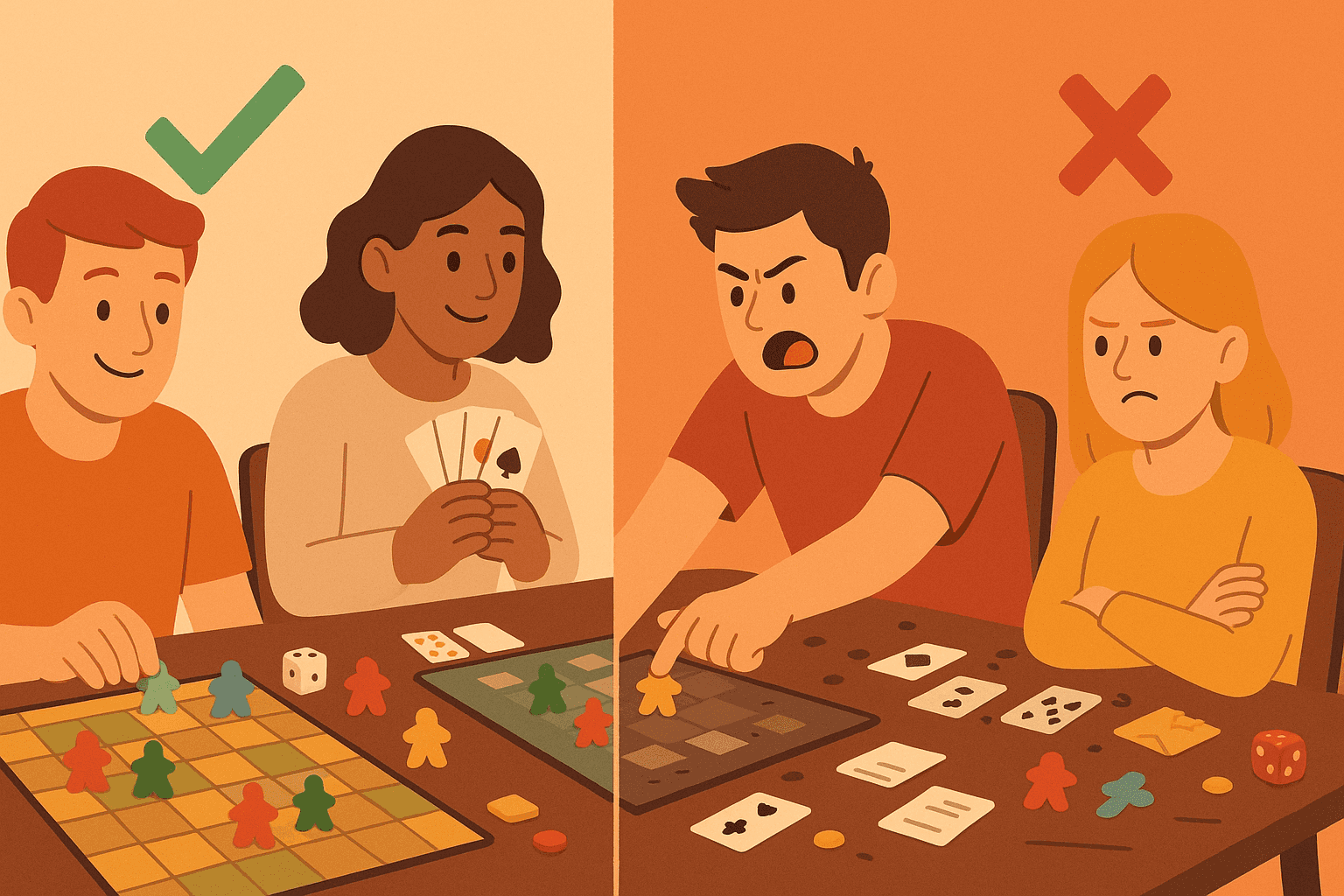
Game Etiquette: Do’s and Don’ts at the Table
Every game has rules, but not all rules are printed in the manual. How you behave at the table can make or break the experience for everyone. Whether you’re playing a light card game like Uno, trading in Catan, or sitting at a Poker table, understanding basic etiquette helps keep the game enjoyable, fair, and fun.
Created By Adam Davis Fernsby
Game Etiquette: Do’s and Don’ts at the Table
Every game has rules, but not all rules are printed in the manual. How you behave at the table can make or break the experience for everyone. Whether you’re playing a light card game like Uno, trading in Catan, or sitting at a Poker table, understanding basic etiquette helps keep the game enjoyable, fair, and fun. We at Playiro explain it all!
The unspoken rules of gaming
Good game etiquette isn’t just about avoiding fights - it’s about creating a smooth flow where everyone enjoys themselves. In some cases, etiquette is almost as important as the rules themselves.
For example:
- In Blackjack, players are expected to use hand signals rather than shouting “hit” or “stand.”
- In Catan, trading politely builds better strategies (and fewer arguments).
- In Bridge, silent and respectful bidding is part of the game’s culture.
These aren’t “official rules,” but they’re just as crucial for a positive atmosphere.
Five essential etiquette tips
Instead of separating “do’s” and “don’ts,” here are five golden rules that combine both - easy to remember and relevant for most games:
Respect the turn order
Acting too early in Poker or skipping ahead in Uno causes confusion. Wait for your turn, always.Agree on rules before starting
Some groups play Uno with stacking +4 cards; others don’t. Some play Rummy with different scoring systems. Clear this up at the start.Handle components carefully
Whether it’s cards, chips, or dice, keep things organized. In Poker, for instance, messy chip stacks make betting harder to track.Celebrate, but don’t gloat
Winning is fun, but over-the-top celebrations - especially in competitive games like Blackjack - can sour the mood.Keep distractions minimal
Avoid phones, unrelated conversations, and side discussions during gameplay. In games with strategy like Catan or Bridge, focus matters.
Common mistakes players make
Even experienced players sometimes break table etiquette without realizing it:
- Talking about folded cards in Poker → It can affect other players’ strategies.
- Taking too long to make decisions → In games like Yahtzee or Skip-Bo, endless hesitation slows the fun for everyone.
- Arguing mid-game → Instead of debating rules endlessly, agree to pause and clarify before continuing.
Small slips are fine, but repeated bad habits can ruin the atmosphere - especially in mixed groups where expectations differ.
Games where etiquette often matters most
Etiquette matters in all games, but some settings bring it into focus more than others:
- Uno - A quick, competitive card game where agreeing on house rules upfront avoids mid-game conflicts.
- Catan - Negotiation, trading, and interaction make etiquette critical.
- Bridge - A strategy-heavy game where communication and bidding culture are key.
- Poker - Includes betting guidelines, dealer etiquette, and table behavior tips.
- Blackjack - Learn both the basics and proper interactions with dealers and other players.
These games demonstrate how etiquette impacts different settings, from family game nights to casino tables.
Final thoughts
Game etiquette isn’t about being perfect - it’s about creating a better experience for everyone. By agreeing on rules, respecting other players, and keeping the atmosphere friendly, you make every game more enjoyable.
Master the rules, understand the unspoken expectations, and you’ll find that playing fair is just as rewarding as winning.